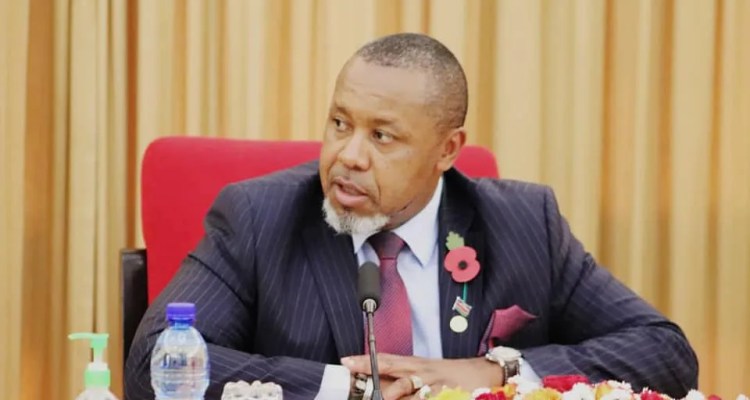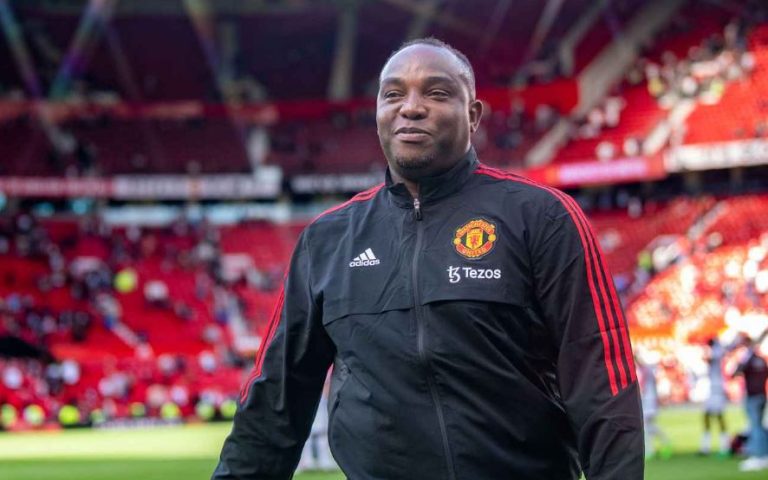Who is Malawi’s Vice President, Saulos Chilima?
Prior to his political career, Chilima worked in the private sector, holding various executive positions in companies such as the Malawi Stock Exchange and the Malawi Confederation of Chambers of Commerce and Industry.

Saulos Klaus Chilima is a Malawian politician who served as the Vice President of Malawi from 2020 to 2024. Born in 1977, Chilima rose to prominence as a running mate of President Lazarus Chakwera in the 2020 presidential election. Prior to his political career, Chilima worked in the private sector, holding various executive positions in companies such as the Malawi Stock Exchange and the Malawi Confederation of Chambers of Commerce and Industry. His professional background in finance and business administration has been seen as a significant asset in his political career, particularly in his role as Vice President, where he was responsible for overseeing the country’s economic development and growth.
Chilima’s entry into politics was marked by his appointment as the running mate of President Chakwera in the 2020 presidential election. The election was a significant turning point in Malawi’s political history, as it marked the first time that the country had a peaceful transfer of power from one party to another. Chilima’s selection as the running mate was seen as a strategic move by President Chakwera to appeal to a broader range of voters, particularly in the business community. Chilima’s professional background and reputation for being a shrewd businessman were seen as key factors in his selection, as they were expected to bring a level of expertise and credibility to the government.
Corruption Allegations and Arrest
In November 2022, Chilima was arrested by the Malawi Anti-Corruption Bureau (ACB) on allegations of receiving bribes from a British businessman, Zuneth Sattar. The ACB accused Chilima of receiving $280,000 and “other items” in exchange for awarding government contracts. The allegations were made public after a lengthy investigation by the ACB, which had been monitoring Chilima’s financial activities for several years. The arrest and subsequent charges against Chilima sent shockwaves through the political landscape in Malawi, with many calling for his immediate resignation from office.
The corruption allegations against Chilima were seen as a major blow to his political career and reputation. Many of his supporters and allies in the government were quick to distance themselves from him, and there were calls for him to be removed from office. Chilima denied the allegations, claiming that they were part of a political witch-hunt designed to discredit him and undermine the government. Despite his denials, the allegations against Chilima were widely reported in the media and sparked widespread public outrage.
Court Proceedings and Discontinuance of Charges
Chilima was taken into custody and attended several court sessions, but the trial never commenced. On May 7, 2024, the High Court of Malawi announced the discontinuance of the charges against Chilima, citing a notice of discontinuance filed by the Director of Public Prosecutions (DPP). The reasons behind this decision remain undisclosed, but critics have questioned the timing and the potential involvement of President Chakwera in the decision. The discontinuance of charges has sparked widespread controversy and debate, with many calling for an explanation from the government and the DPP.
The decision to discontinue the charges against Chilima has been seen as a major setback for the anti-corruption efforts in Malawi. Many have argued that it sends a negative message about the government’s commitment to eradicating corruption and undermines the rule of law. The Malawian government has defended the decision, citing the constitutional powers of the DPP to discontinue cases. However, critics have pointed out that the decision was made without any public explanation or justification, and that it may have been influenced by political considerations rather than the merits of the case.
Impact on Anti-Corruption Efforts
The discontinuance of charges against Chilima has sparked concerns among anti-corruption advocates, who argue that it undermines the fight against corruption in Malawi. Critics point out that the decision favors high-profile individuals and sends a negative message about the government’s commitment to eradicating graft. The Malawian government has defended the decision, citing the constitutional powers of the DPP to discontinue cases. However, critics have pointed out that the decision was made without any public explanation or justification, and that it may have been influenced by political considerations rather than the merits of the case.
The impact of the discontinuance of charges on anti-corruption efforts in Malawi is likely to be significant. Many have argued that it will undermine public trust in the government and the judiciary, and that it will embolden corrupt officials to continue their illegal activities. The decision has also sparked concerns about the potential for political interference in the justice system, and has raised questions about the government’s commitment to eradicating corruption.
Political Career and Future
Chilima’s political career has been marked by controversy and allegations of corruption. Despite the discontinuance of charges, his future in politics remains uncertain. His party, the United Transformation Movement, has celebrated the decision, but critics continue to question his involvement in the corruption scandal. As the political landscape in Malawi evolves, Chilima’s role in the government and his potential future in politics remain uncertain.
Chilima’s political career has been marked by a series of controversies and scandals, including allegations of corruption and abuse of office. Despite his denials, many have questioned his integrity and his ability to lead effectively. The discontinuance of charges against him has sparked widespread controversy and debate, and has raised questions about his future in politics. As the political landscape in Malawi continues to evolve, Chilima’s role in the government and his potential future in politics remain uncertain.





